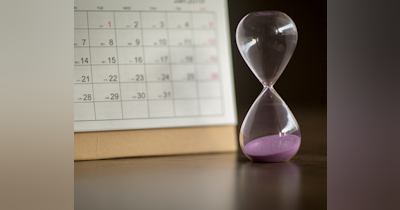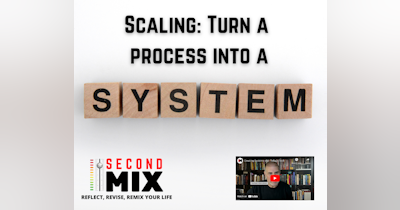I almost died last year.
The Experience:
On February 6th, 2022, I ended up in the emergency room for an appendectomy. Following an overnight admission, I underwent surgery the subsequent morning. All appeared to go well, and I was discharged the day after the operation, which seemed to have been executed flawlessly.
However, the tranquility was short-lived. A mere two days later, I was back in the emergency room, wracked by a fever that oscillated between 104 to 106 degrees, depending on the thermometer. It was soon discovered that an infection had taken hold, a souvenir from the recent surgery. My memories of the following moments are hazy at best, but I do recall being administered an antibiotic named Zosyn to combat the infection, which unfortunately triggered an allergic reaction.
Consequences of the allergic reaction were intense. My body turned a sickly yellow as my liver released copious amounts of Bilirubin into my bloodstream. Medical personnel promptly inserted a PICC line into my arm, an IV that reaches close to the heart, and for the following 10 days, it became my lifeline. Ingesting no solid food during this time, all my nutrients were supplied via this IV, with only ice chips to accompany them.
Upon discharge after these grueling 10 days, I managed about a week at home. I took my prescribed antibiotic pills diligently until one day, crippling nausea prevented me from continuing the regimen. Concerned, I returned to the ER, where tests revealed that my white blood cell count was elevated, indicating the persistence of the infection.
Consequently, I found myself hospitalized for another week. Although, this time, I was far more lucid, which admittedly had its downsides as boredom frequently took hold. Unlike the previous stay, when the bulk of my time was spent in a semi-conscious state, I was now fully aware of my surroundings, and desperate to resume an active lifestyle. Yet, I was bound by my IV and a newly inserted tube to drain the infected blood from around my bladder and intestines. Upon my return home, I was given another PICC line, enabling me to self-administer my antibiotics.
To those who might be watching this, I'm currently holding up a syringe — a 20 milliliter one. This syringe was part of my daily routine, the tool I used to inject the antibiotics via the tube. I can't claim to have been comfortable with this degree of self-care; it felt as though too much could go wrong, as if I were performing surgery on myself. Gradually, however, I adapted, but it remained a disconcerting aspect of my recovery.
Throughout this ordeal, multiple hospital visits were necessitated by the need for 12 CT scans, with a 13th planned. The fourth visit to the hospital was prompted by an unshakable feeling of unease. Upon examination, the medical staff attributed my symptoms to something as benign as heartburn. They assured me that I was recovering well. To my relief, they removed the tube from my stomach, took out my PICC line, and sent me home.
Since then, I have attended a few follow-up appointments, but on the whole, my recovery has been progressing smoothly. This ordeal consumed all of February and most of March, a period of intense struggle and learning.
What I Learned:
Number One: The Absolute Importance of Good Health
I've discovered that without your health, everything else loses its significance. With my health declining, my life seemed to shrink and focus solely on the battle I was undergoing. The vibrancy and interest that used to infuse my life — my love for personal development, history, philosophy, marketing, business, and behavioral economics — dimmed until it was all but extinguished. A previously active engagement with TV, video games, social media, and music turned into apathy. The desire to learn, to soak up knowledge, had evaporated. My days were spent oscillating between sleep and wakeful stupor, staring aimlessly at the ceiling. Even though my mind urged me to care, to engage, my body just didn't have the energy or will to respond. This was a jarring contrast to the 49 years of relatively good health that I had enjoyed and taken for granted.
Before this experience, I'd held a naive understanding of illness. I had promised myself that I would never let sickness break my spirit, assured that I would always fight back with unwavering determination. But when the pain became unbearable and exhaustion overwhelmed me, I realized that surrendering sometimes seemed the only option. I understood then that every person has their own threshold of pain and endurance, and it's not for me to judge when they reach it. This realization has instilled in me a new sense of empathy and compassion towards those who battle chronic pain or terminal illnesses.
While I still advocate for resilience and fight, I've learned that it's important to temper that with understanding and empathy. If someone finds it hard to keep going, it's not for me to pass judgment. Instead, my experience has taught me to offer support and understanding in their time of need. This newfound perspective is something I hope will shape my interactions and relationships in the future.
Number Two: The Profound Power of Choice and Surrender
The second lesson I gleaned from this experience is about the immense power of surrender and choice. As I started to heal, I was nudged to begin walking. This idea was met with hesitance and an underlying fear, but I gave in, stepping out of my comfort zone. It was during one of these reluctant walks, tethered to my IV stand, that I happened upon a profound realization.
The words of my doctor, directed at another patient, resonated within me as I passed by their room: "It's not the beginning of the end for you, but if you don't take action, it will be." This phrase, though not meant for me, struck a deep chord within me, prompting a period of intense reflection in the chapel.
The doctor's words helped me realize the potency of surrender, that it's an active choice. I could choose to surrender, to stop fighting for my health and my life's ambitions. Conversely, I could also choose to embrace life, to appreciate its beauty and wonder, and to actively strive towards my goals. Each choice carries significant power and dictates the trajectory of our lives. So the option to surrender or to pursue isn't merely a passive response to our circumstances, but an active decision that shapes our future.
Number Three: The Pitfall of Excuses and the Choice to Progress
The third lesson I learned is about the prevalence of excuses and their capacity to hinder progress. Amid my time in the hospital, I found myself with a myriad of plausible excuses to halt my pursuits. I could have legitimately put a pause on my consulting business, withdrawn from my real estate ventures, shelved my music endeavors, or abandoned my aspirations for public speaking.
Every person carries a bank of reasons and justifications, a storage of excuses, that they can use to stop moving forward. But here lies the hidden peril - it only requires one of these excuses to effectively derail progress. This is not a situation exclusive to hospital stays or physical illness. At any point in life, we can craft reasons to stop chasing our dreams. But each time we give in to these excuses, we are hindering our own path to achievement.
What we need to recognize is that progress and excuses are mutually exclusive - we can either choose to keep moving forward or to remain static, justifying our inaction. The power to decide rests with us. We can choose to push past the excuses, focus on our objectives, and keep advancing, or allow ourselves to stagnate under the weight of those excuses.
Number Four: Personal Development on Autopilot
Jim Rohn once proclaimed, "The major value in life is not what you get. The major value in life is what you become." Throughout my ordeal, this profound truth resonated deeply within me. Indeed, my evolution through personal development over the past three years placed me on an automatic path of positive action, a testament to the transformative power of self-growth.
In my fight for health, as noted from point one, my zest for life diminished significantly. During my hospital stay, I was in a state of detachment - no reading, no listening, no conscious learning. Yet, the scripts of self-improvement ingrained in my mind kept playing, pushing me forward. It was as if I was coasting down a hill, the momentum of my past efforts carrying me along.
Just before my health declined, I had acquired a two-unit multifamily property. Given my condition, I could have easily excused myself from any further involvement. However, I enlisted the help of a friend, a fellow contractor and property owner, to get the place ready for tenants. Despite the lack of personal investment or care, I kept moving, ensuring my friend was adequately compensated and the process ran smoothly.
Even more astonishing was that amidst this health crisis, I made a successful offer on a four-unit apartment building. This action was not borne of passion or interest, but rather the autopilot mode my past self had set into motion.
This behavior was entirely new to me. Prior to 2019, I would have shied away from adversity, employed every excuse to avoid risk, and deflected responsibility onto others. But my dedication to personal development over the previous three years had transformed me. I had become someone who could keep working through hardships, someone who wouldn't back down in the face of adversity.
Zig Ziglar's wisdom rings true, "Your input determines your outlook. Your outlook determines your output. And your output determines your future." I realized there's a grace period, a coasting period, where the benefits of your personal growth efforts linger even in their absence. It's akin to coasting down a hill in a car placed in neutral, making it to the bottom and even part way up the next incline. And thankfully, halfway up that hill, I managed to shift back into drive.
As my health gradually improved, my habits evolved as well. My walks and hikes became opportunities to immerse myself once again in motivational and educational materials. This period made me appreciate the person I had become. Despite the pain and the apathy, I managed to navigate through the motions, preparing the two-unit property, acquiring the four-unit building, taking care of responsibilities when I had every excuse not to.
This was a stark contrast to the person I was back in 2019. I would have used the excuse, shifted the blame, avoided the risk. But within three short years, by February 2022, I had transformed significantly.
So, while I'm not imparting any grand lesson today, nor advising you on how to live your life, I want to emphasize this: designing and leading an extraordinary life is within your reach.







